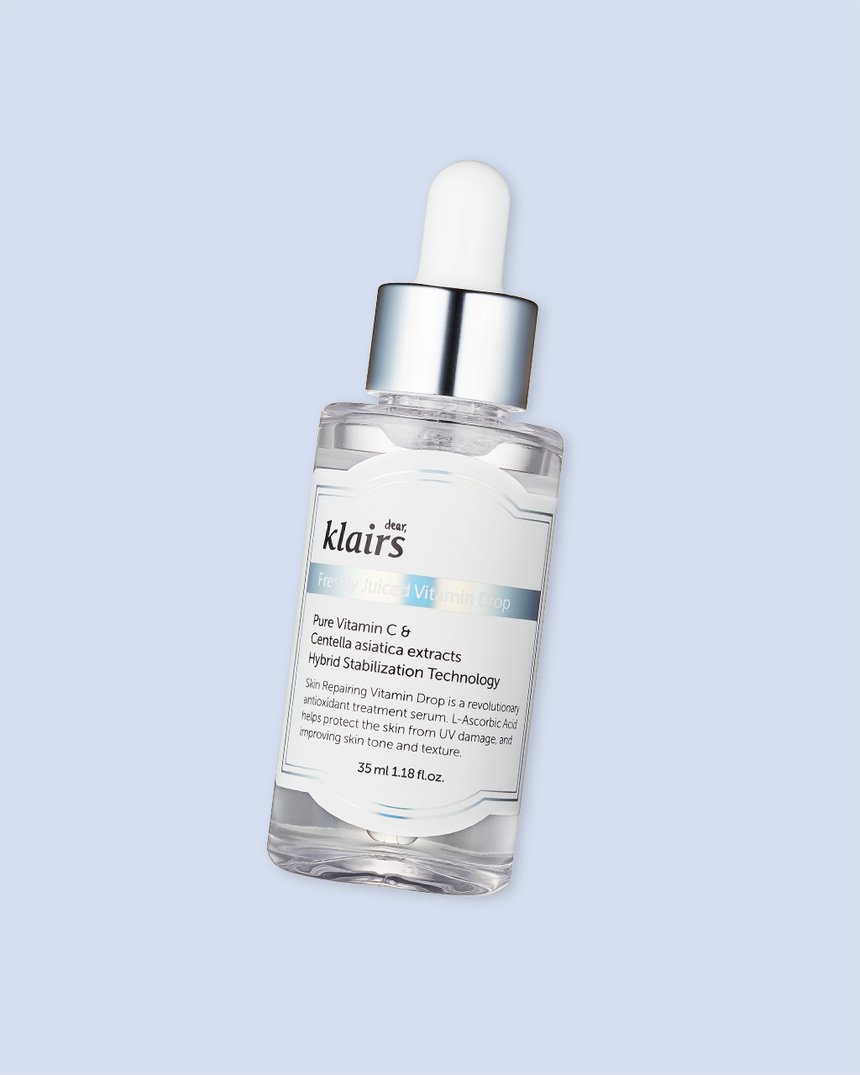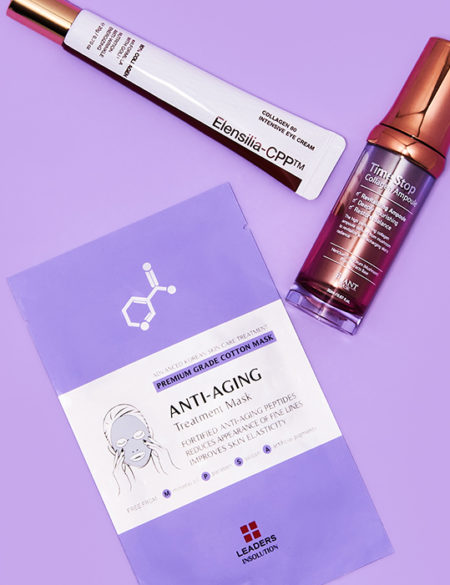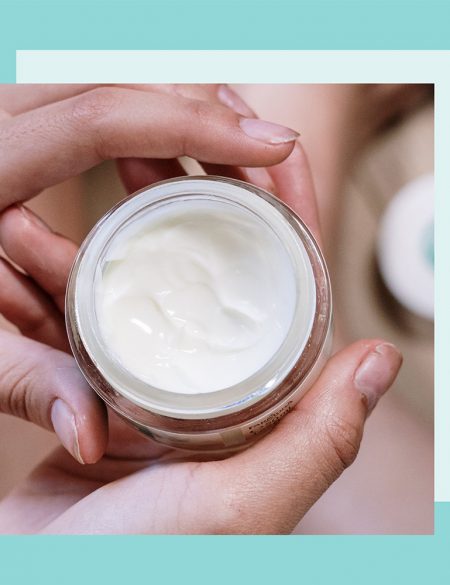Beauty supplements are having a moment right now and one ingredient that’s especially popular is collagen. We asked dermatologists and dietitians to share their thoughts on the supplement variety so you can make an informed decision on whether or not ingestible collagen is worth your money and a spot in your daily routine.
Earlier this summer, CEW Beauty Insider named collagen, in both skin care formula and supplement form, as one of the strongest trends to emerge from the beauty trade show Cosmoprof North America. “It’s an ingredient trend retailers see as relevant, especially as beauty and nutrition merge closer together,” said the publication.
The hype around collagen supplements does not come as a surprise to skin care experts like Dr. Adarsh Vijay Mudgil, medical director of Mudgil Dermatology in New York City. “Everyone wants healthy, radiant skin and wants to find that ‘X-factor’ secret supplement. Collagen supplements are the secret du jour,” he says.
But do they actually work? Read on for the scoop.
What Collagen Supplements Claim to Do
As a refresher, collagen is a structural protein made up of a long chain of amino acids that gives skin its firmness and elasticity. As we age, collagen gets broken down, resulting in wrinkles and sagging skin. The goal of collagen supplements is to protect and help rebuild this collagen with forms of the protein from sources like beef (bovine collagen) or fish (marine collagen).
Sarah Greenfield, a registered dietitian and the director of education at Hum Nutrition, says that when ingested in the form of a supplement, “collagen helps decrease fine lines and wrinkles, decrease pore [size appearance], and improves overall skin texture”.
Sarah directed me to a 2014 study conducted by the department of dermatology at the University of Kiel in Germany that found that skin elasticity in women aged 35 to 55 improved after taking daily doses of collagen for eight weeks.
Hum Nutrition offers two types of collagen supplements: Collagen Pop, dissolvable tablets, and Collagen Love. The latter currently has 4.7 out of 5 stars on sephora.com, with positive reviews from customers who say they’re experiencing softer, smoother, and brighter complexions thanks to the supplement.
What the Experts Say
While all of the experts we spoke to acknowledged that there is research to suggest that collagen supplements may provide anti-aging benefits, most feel that the evidence isn’t quite strong enough yet.
“A major issue is that most studies [aren’t using the same] supplement, making it difficult to identify which combination of amino acids work best and in what dosage. Plus, most studies are relatively low in sample size, making it even harder to generalize the results to the majority of the population,” says Katey Davidson, a registered dietitian.
Debbi Burnes, a cosmetic chemist and founder of natural beauty line Sumbody, also notes: “When you use edible collagen, it gets broken down and doesn’t reach the skin as actual collagen. You break collagen down in the digestive system to amino acids that are utilized where needed, it does not mean they will be used by your skin. We need more studies and research to really have a conclusive answer.”
Others feel that there are better, more natural and thoroughly-researched ways to achieve a firmer, youthful appearance. Which brings us to…
Collagen Supplement Alternatives
“Collagen is a protein. Adequate protein in the diet is all you need to support your skin’s ability to manufacture healthy collagen,” says Dr. Mudgil.
To maintain and boost your skin’s health, Dr. Hadley King, an NYC-based dermatologist, recommends taking a vitamin C supplement (“It is essential in the pathway to build collagen,” she says), while Katey suggests consuming antioxidant-rich foods like blueberries and lots of omega-3s, found in foods like fatty fish and walnuts.
Topically, Debbi recommends using a retinol or products with vitamin C (like the Klairs Freshly Juiced Vitamin C Drop) to promote collagen production and Dr. Mudgil stresses the importance of protecting skin’s collagen by applying sunscreen daily.
The Bottom Line
“Taking a collagen supplement is not going to make your skin look 20 years younger,” says Katey.
However, trying them (always consult with your doctor before adding any new supplement into your routine) may be worth it for subtle skin improvements and for other health benefits. Sarah notes that “collagen is also good for healing the gut and improving digestion as it is a clean source of protein.”
As with any supplement, consider collagen as a means to enhance a balanced diet and an established skin care regimen. When choosing one, Dr. King recommends always “looking for FDA-approved products with proven science-backed efficacy.”















